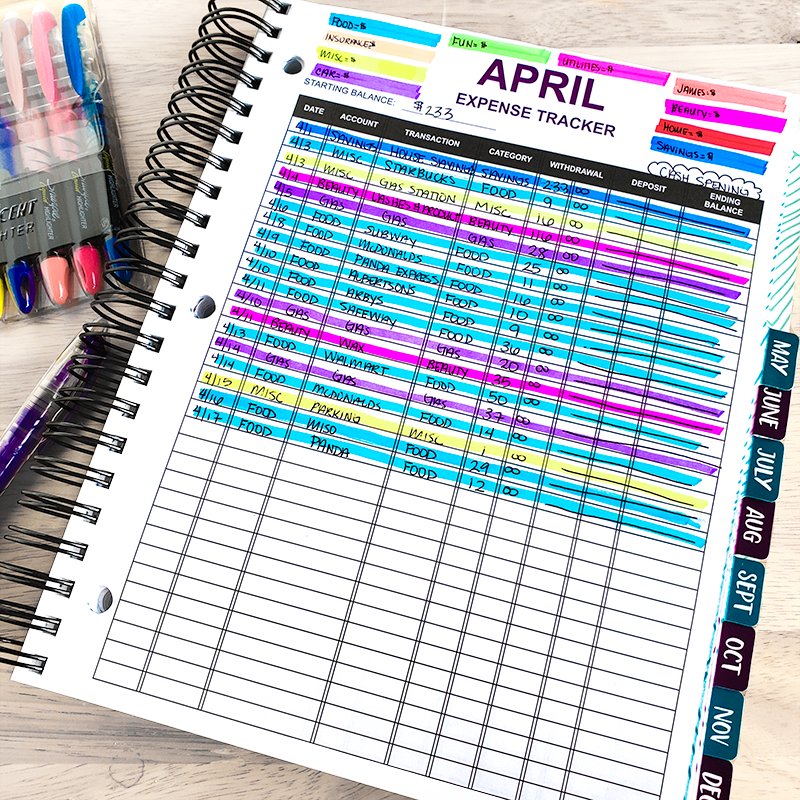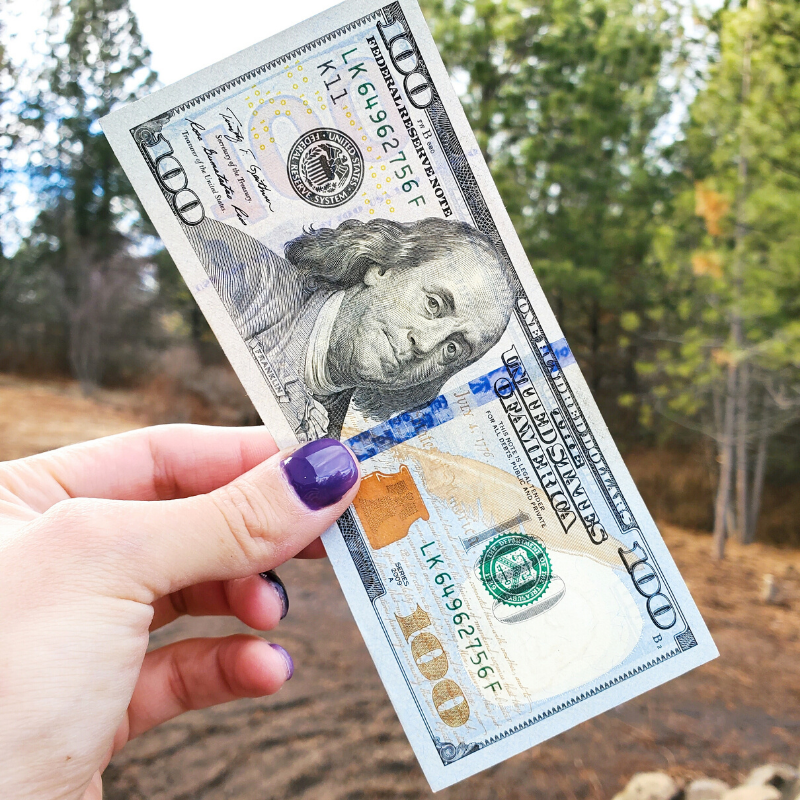
It all begins with your “starting balance.”
When creating a budget, most of us focus on tracking our expenses, but tracking your income is just as important. After all, without having a solid grasp on income, then it is impossible to truly balance a budget.
But what happens at the end of the month?
Once income and expenses have been calculated, how does our remaining balance carry over into the next month’s budget?

Below, we’ll do a deep dive into the importance of a starting balance and why it matters for your budget.
So, What Exactly is a Starting Balance?
As the name suggests, “starting balance” refers to the balance of your account at the beginning of each month. For the purpose of simplicity, let’s assume that “month” refers to the calendar month. I only want to clarify that because some people prefer to track their monthly budgets based on payday (say, the 20th to the 20th), and that’s ok!
In the ideal world, your starting balance would be $0.00.
Why?
Because $0.00 is the ultimate benchmark of a perfectly balanced, zero-based budget.
Remember, every single dollar has a purpose. Whether you’re paying the mortgage, paying the electric bill, or getting groceries for the month, each dollar spent should be itemized in your budget. Even if you are investing in retirement accounts or beefing up your savings account, those dollars are technically accounted for.
In other words, no matter how much your income is, even if you receive a bonus or a monetary gift, each dollar in your budget should have a place to go! Once all your expenses are subtracted from your income, a zero-based budget should equal $0.00.
But we don’t live in a perfect world.
If you’re like most people, the chances are that you have money sitting in your checking account right now. After all, it’s scary to bring your checking account down to $0.00. Most people, myself included, like to keep at least $500 to $1,000 in my checking account to help prevent overdraft fees or help with unexpected bills. I add a line item in my budget as a fixed bill every month to contribute $280 to my checking account cushion. When I was paying off my debt, that amount was around $80 per month.

The balance that carries over in your account to the next month is your starting balance.
For example, if you have $500 in your checking account and today is the 1st of the month, then your starting balance is $500.
Why Does a Starting Balance Even Matter?
If you are already tracking expenses and income, then you might be wondering why tracking your starting balance even matters in the first place.
Your starting balance matters because it technically counts as “income” in the new month.
Whatever money you have in your account is fair game to be spent in the new month’s budget, which is why it counts as income. If you are using an online expense tracker, it is important to know that some budgeting apps refer to this as “opening balance.” Whatever the term, they essentially function as the same thing.
In the event of an unexpected bill, you can use that money to pay off expenses without getting into debt.
How to Close Out a Balance at the End of the Month
Your starting balance goes hand in hand with your closing balance.
Think of it this way: your closing balance for this month will be your starting balance for next month.
To accurately calculate your closing balance (and therefore next month’s starting balance), use the following equation:
Opening balance (what you have in your bank account and cash envelopes at the beginning of the budgeting period) + Total Income (money received during the month) – Total Expenses (what you spent throughout the month, including monies contributed to retirement accounts) = Closing Balance

Fortunately, there’s a simple way to double-check your calculation: check your checking account and budgeting envelopes.
If you closed your budget out correctly, your closing balance should match your checking account balances and envelopes on the first day of the new month.
What Are the Benefits of Knowing Your Starting Balance?
Many budgeting articles and programs talk about tracking income and expenses, but very few discuss the importance of knowing your starting balance.
So that raises the question: why is it important in the first place?
- A healthy starting balance can help end the paycheck-to-paycheck cycle. If you’re currently in a paycheck-to-paycheck cycle, it may seem impossible to break. It can take hard work to increase the money you have saved in the bank, but if you’re fully funded for the month before the month starts, then you no longer have to rely on the income earned in that current month. Instead, you can use new money to budget into the future, whether that’s through savings, investing, or preparing for a major life goal.
- It’s a good way to double-check your budget. If you’re following a zero-based budget, then you would ideally end the month with $0.00. However, like I stated above, most of us already have a starting balance since we tend to keep money in our checking accounts. With that being said, a zero-based budget should result in a closing balance that is exactly the same as your opening balance. For example, if you began the month with $500 and followed a zero-based budget, you should end the month with $500. That $500 functions as a baseline similar to $0.00. If your closing and opening balances are different, then you know that something went awry in your budgeting.
- You can measure your financial health throughout the year. Keeping track of starting and closing balances will begin to paint a larger picture of your financial health. We tend to focus on the month-to-month aspect of budgeting, but it is also important to ensure that you are on track to meet your goals. If your starting balance each month seems to get lower and lower, then that may signal that there is extra spending that could potentially be trimmed from your budget. On the other hand, a starting balance that appears to increase throughout the year could signify financial stability or suggest that you could afford to pay off more debt, put more towards retirement, or save for long-term goals.
Bottom Line
Of course, tracking your starting and closing balance is not a substitute for tracking income and expenses. However, it can add another layer of nuance for those who are serious about fully understanding and taking control of their financial health.
By keeping track of your starting balance, you will take your budgeting skills to the next level!

